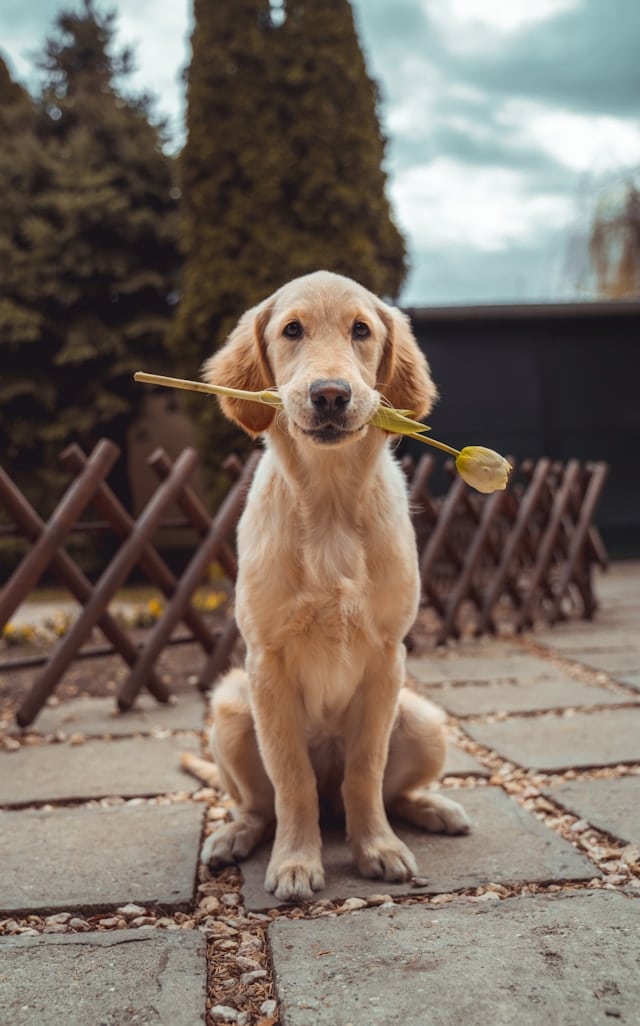It’s a scene that leaves many pet owners distraught and feeling helpless: their usually calm and composed dog, reduced to a quivering, terrified heap at the first bang of a firework. This fear of loud noises such as fireworks is common among dogs and can cause significant distress for both the dog and its owner. The American Kennel Club (AKC) indicates that noise aversion or extreme fear of loud sounds affects roughly one-third of dogs in the United States. However, with the right approach, you can help your pet overcome this fear. Let’s explore some methods that can aid your dog in managing and ultimately overcoming this anxiety.
Understanding the Fear
Before we delve into the best methods to address this issue, it’s essential to understand what dogs experience when they hear loud noises like fireworks. Many dogs have acute hearing, meaning they can hear noises that are imperceptible to humans. When these noises are sudden, loud, and unfamiliar, they can trigger a fear response.
Also to see : How to Introduce a New Puppy to a Multi-Dog Household Without Inciting Jealousy?
Dogs don’t have the context to understand a firework display, a thunderstorm, or other loud noises. What we see as exciting or natural phenomena, they perceive as potentially dangerous. This fear can manifest as trembling, whimpering, hiding, or attempts to escape the noise.
Training Techniques
Training is one of the most effective ways to help your dog overcome his fear of loud noises. This usually involves gradually exposing your dog to the noise that frightens him, while associating that noise with something positive.
This might interest you : What’s the Best Way to Treat a Tropical Fish with Fin Rot in a Community Tank?
The AKC recommends a method called desensitization, which involves playing a recording of the fireworks at a low volume, while giving your dog treats and praise. Gradually, over time, increase the volume of the sound while maintaining the positive reinforcement. Eventually, your dog will begin to associate the sound of fireworks with positive experiences instead of fear.
Counterconditioning is another training technique that can be used. This involves changing your dog’s emotional response to the noise. Rather than feeling fear, the goal is for your dog to associate the noise with something positive like a treat, toy, or attention from you.
Using Calming Aids
Another method to help your dog cope with loud noises is using calming aids. These can range from thunder shirts, which apply gentle, constant pressure to your dog’s body, much like a hug, to pheromone diffusers, which release a synthetic version of the dog-appeasing pheromone that mother dogs emit to comfort their puppies.
Music can also be used as a calming aid. Studies have shown that classical music can have a soothing effect on dogs, and there are even playlists specifically designed for dogs with noise anxiety. While these aids can be beneficial, they will be most effective when used in conjunction with a training program.
Pharmacological Assistance
In some cases, when the fear is overwhelming and affecting the dog’s quality of life, pharmacological assistance may be necessary. It is important to consult with a veterinarian who can assess your dog’s condition and prescribe appropriate medication if needed.
Medications can range from fast-acting anti-anxiety drugs to be used during an actual event to longer-term medications that can help to lower overall anxiety levels. Always heed your vet’s advice on the proper usage and dosage of these medications.
Consulting a Professional
If your dog’s fear of loud noises is severe and resistant to your efforts, it may be time to consult a professional. A certified professional dog trainer or a veterinary behaviorist can provide you with more personalized advice and strategies.
These professionals have a deep understanding of dog behavior and can guide you through a more intensive desensitization and counterconditioning program. They can also work in conjunction with your vet to determine if medication could be beneficial.
In the end, helping your dog overcome their fear of loud noises like fireworks may take time and patience. There’s no one-size-fits-all solution, and what works best for one dog might not work for another. It’s about understanding your dog, exploring different approaches, and finding the method that will help them feel safe and secure.
Managing the Environment
To help your dog cope with loud noises, managing their environment is incredibly crucial. Creating a secure and comfortable space for your dog can go a long way in reducing their noise anxiety.
A simple and effective approach is to provide your dog with a ‘safe haven.’ This could be a specific room or a comfortable crate where they can retreat when they are scared of fireworks or other loud noises. This space should be somewhere your dog naturally feels safe and relaxed. Make sure it’s well-insulated and as soundproof as possible. You could also play soft music or white noise to help mask the sound of the fireworks.
Additionally, try to distract your dog during a noise event. Engaging them in play, a fun training session, or a comforting cuddle can go a long way towards relieving their anxiety. However, be careful not to force your dog to engage if they’re showing signs of wanting to retreat and hide.
Another important aspect of managing the environment is to ensure your dog is well-exercised before a known loud event, like a firework display. A tired dog is generally calmer and more likely to sleep through the noise.
Conclusion
Dealing with a dog’s fear of loud noises can be a stressful experience for both the dog and its owners. Remember, the aim is not to eliminate the fear entirely – that’s often not possible given dogs’ sensitive hearing. Instead, the objective is to help your dog manage their fear and reduce their distress.
Training techniques such as desensitization and counterconditioning, the use of calming aids, pharmacological assistance, and managing the environment are all strategies that can help your dog cope better with loud noises. Remember, every dog is different, and what works for one may not work for another.
It’s crucial to remain patient and supportive through your dog’s journey towards coping with their fear. Celebrate small victories and stay positive. If your efforts don’t seem to be working, don’t hesitate to consult a professional. They can provide specialized guidance and solutions.
With time, understanding, and a little help, your dog can learn to better manage their fear of loud noises, leading to a happier, less anxious life. As dog owners, it’s our responsibility to ensure our pets feel safe and secure in their environment. So, keep exploring options and find the best method that suits your dog’s needs and temperament.











